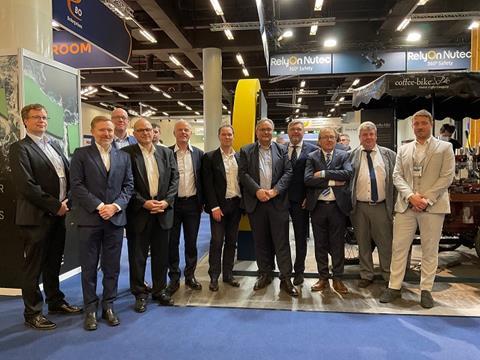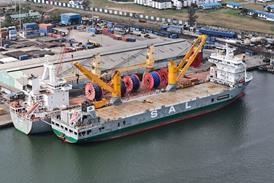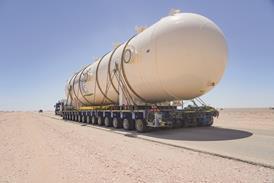Six key ports for offshore wind energy in Northern Europe have formed an alliance with the aim of resolving capacity issues as soon as possible.

The Esbjerg Declaration set the stage for a markedly faster buildout of offshore wind energy capacity in Europe. The initiative puts great pressure on ports, which are currently experiencing a general capacity shortage. Germany, Denmark, Belgium, and the Netherlands have defined a combined target of delivering at least 65 GW offshore wind by 2030.
This prompted Port Esbjerg (Denmark), Port Oostende (Belgium), Groningen Seaports/Eemshaven (the Netherlands), Niedersachsen port/Cuxhaven (Germany), Nantes-Saint Nazaire port (France) and Humber (UK) to forge an alliance.
Dennis Jul Pedersen, ceo of Port Esbjerg, said: “The current geopolitical situation in Europe requires that we install even more wind power. And we need to do so fast. The Esbjerg Declaration proves that transboundary collaboration is the way forward. To alleviate the present capacity issues, we also need to collaborate with other ports. We need to strengthen our collaboration at both the operational and practical level.” This includes collaborating on practicalities as well as sending a signal to the market that ports are prepared to do their utmost to promote the green transition through offshore wind.
“Setting ambitious targets is great. But it’s also important that people listen to us and understand that there are limits to what we as ports can do given our current capacity. We believe that by sharing experience, we can increase the pace, and by jointly lobbying politicians, we can help find solutions to the major capacity issues facing our ports,” said Jul Pedersen.
The six ports will meet twice annually to discuss and share insights and knowledge. They will consider sharing work if ports lack capacity to take on entire projects, for instance.
“We are now joining forces to find the best solutions for offshore wind port optimisation. Together, we hope to be considered as serious partners in the efforts to achieve the targets defined for European offshore wind,” said Erik Bertholet, business manager logistics and offshore wind, Groningen Seaports/Eemshaven.
Holger Banik, managing director at Niedersachsen Ports, added: “The energy transition poses an enormous challenge for all European players in the offshore industry, so a stable alliance is key to success. Even if the ports are sometimes in competition with each other, we still face the same challenges and responsibilities to shape the European future. Through a joint network, we can also meet the political and market requirements in a better way.”
















